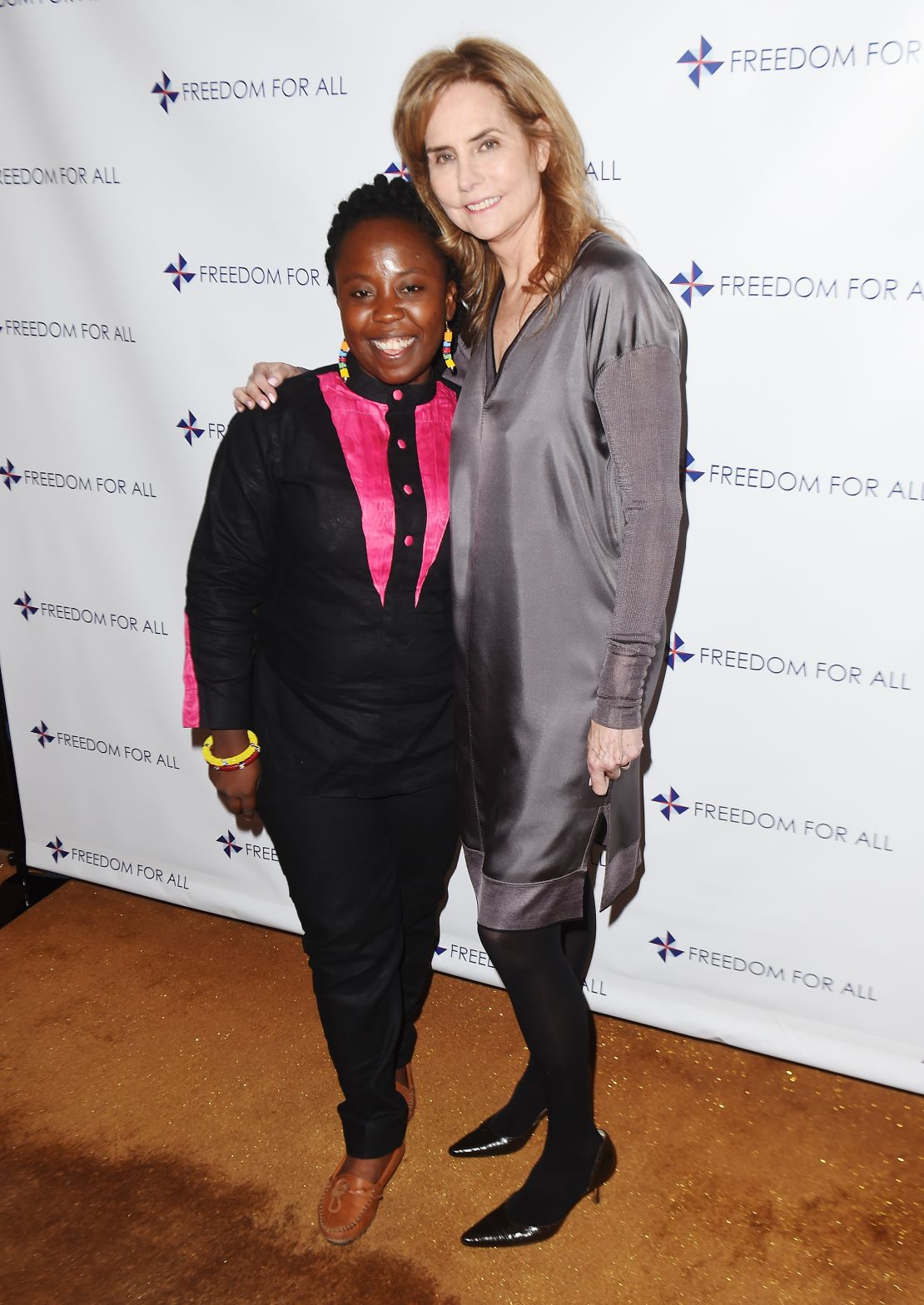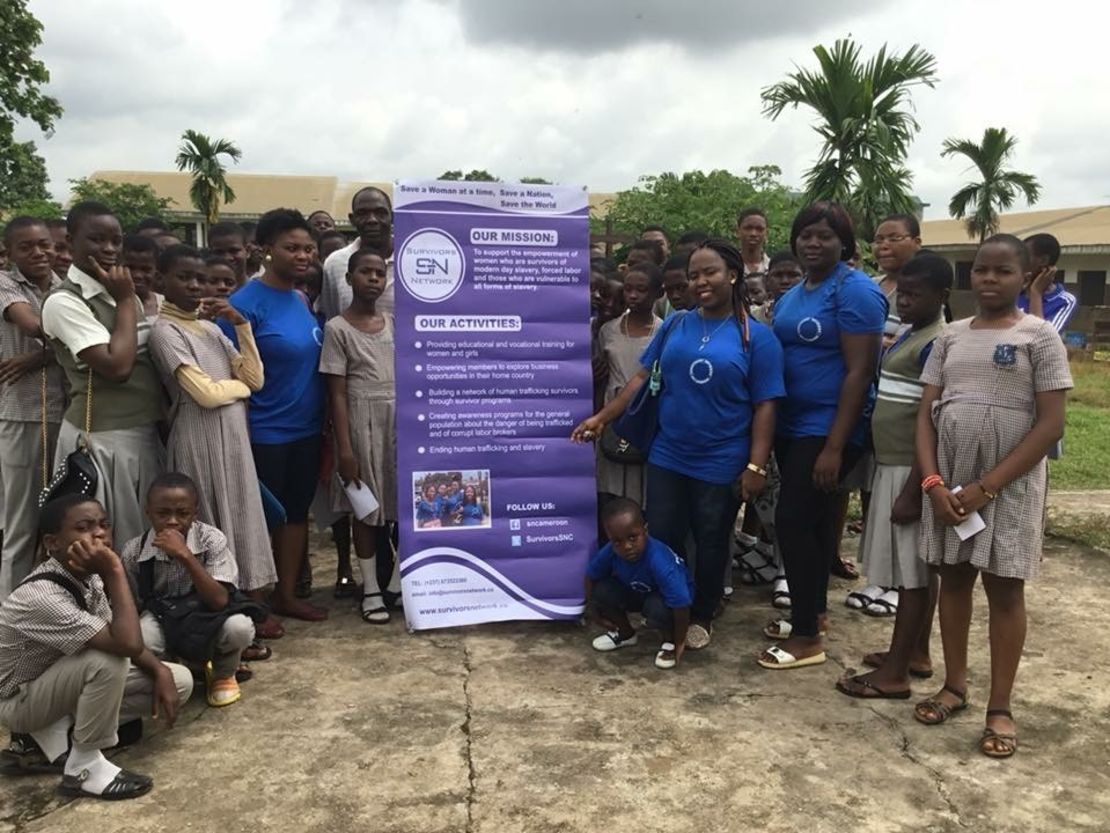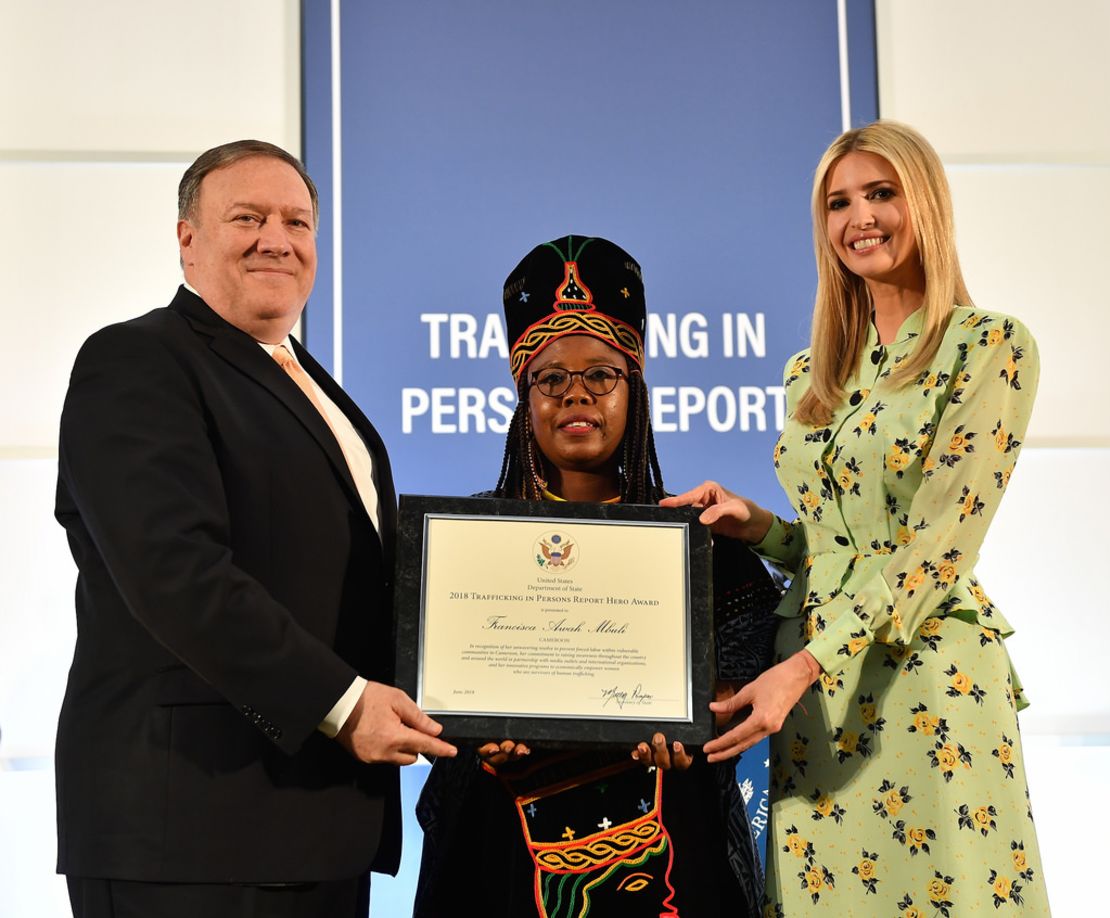It’s been a tortuous journey for Francisca Awah. Last month, the 35-year-old from Cameroon spoke in front of an audience that included Ivanka Trump and the US Secretary of State, when she was honored for her contribution to the fight against human trafficking.
But just three years ago Awah was living in modern slavery, trapped and abused as a domestic worker in Kuwait.
In the spring of 2015, Awah answered an advertisement for an English-teaching job in Kuwait. The pay was good, better than anything she could earn in her home town of Kumba, in south-west Cameroon, even though she had a Masters degree and spoke fluent English. She had a two-year-old son to support, and when she was offered the job, she accepted.
More from The CNN Freedom Project
The reality, it turned out, was very different.
‘Sick and exhausted’
When she arrived in Kuwait she says she was immediately taken to work as a maid in a private home, employed through an agency. She says she was moved between homes for a few weeks, and then eventually ended up with a Kuwaiti family, who she says took her passport.
Awah says the family forced her to work long hours, sometimes in the blistering Kuwaiti sun, with very little sleep.
She says she got sick and exhausted and suffered from back pain from the constant cleaning.
When she asked to leave she says the family told her she would have to repay the $3,000 they had given the agency for her, and she would also have to pay for her flight home.
She says she was paid 75 Kuwaiti dinars (about $250) a month for the two months she was with the family.
Stories of hope
Awah says she plucked up the courage to turn on the television while she was working. She found herself watching The CNN Freedom Project, which reports on all forms of modern slavery.
“Sometimes they show people that they have saved,” she later told CNN. “I was having hopes.”
One report, profiling Katie Ford, the former CEO of a modeling agency, who now runs anti-slavery organization Freedom for All in the US, struck a particular chord.
Awah says she had a cell phone and used it to find Ford’s details on the internet. She contacted Ford, who coached her through her eventual escape to a friendly embassy, and then paid for her flight to Cameroon.

The family deny they prevented Awah from leaving or asked her to pay back the $3,000. They say she was not overworked, and that she worked no more than eight hours a day as stated in the contract from the agency, but they did admit that she did not sign that contract.
Read: How traffickers exploit children in Haiti’s orphanages
Vulnerable to forced labor
There are more than 600,000 migrant domestic workers in Kuwait, in a population of 4 million people.
The 2018 US State Department Trafficking in Persons (TIP) report says that migrant domestic workers in Kuwait are particularly vulnerable to forced labor inside private homes.
Read: TIP report highlights dangers of institutionalizing children
It also says that “Kuwait’s sponsorship law – which ties a migrant worker’s legal residence and valid immigration status to an employer – restricts workers’ movements and penalizes them for leaving abusive workplaces.” It adds that employers often confiscate passports, although it’s illegal.
But the report notes that the Kuwaiti government is making significant efforts to tackle the problem.
It has introduced a law guaranteeing domestic workers one day off per week, a maximum 12-hour workday, a minimum wage paid monthly and paid annual leave. It has also set up “a government-run central recruitment company intended to reduce recruitment costs and combat illegal recruiting fees.”
Supporting survivors
In the months after Awah made it back home she started to share her story, to try to raise awareness about the risk of trafficking.
She was keenly aware that if people found hardship when they returned home, they could be re-trafficked. “If you rescue someone and the person is not self-sufficient what do you expect?” she told CNN.
Awah eventually set up a non-profit organization called Survivors’ Network. She says it provides interim employment for trafficking survivors on a poultry farm, as well as microfinance, so women can set up their own businesses.

She also champions women’s education and teaches people to spot the signs of trafficking, getting the word out through churches, schools, local radio stations and social media. Awah says her organization has advised more than 500 African women trapped in domestic servitude in Kuwait and Lebanon on how to return home.
Anti-trafficking ‘hero’
In June, Awah was named by the U.S. State Department as a TIP report “Hero” – an individual who has made a particular contribution to the fight against human trafficking.

“A few years ago, I could have only dreamt of such an honor” she told the audience of State Department officials at the TIP report launch ceremony, in Washington DC.
And she shared her message with them, that rescue is not enough: “To prevent trafficking, people need vocational training to build skills so that they can work and become self-sufficient in their home countries.”
Awah admits it can be hard to keep telling her story, but doing so has become one of her most powerful tools.
“We can all talk about this issue in our schools and workplaces and over dinner with our families,” she told the State Department audience. “The more people who know and care, the more people we will save.”




